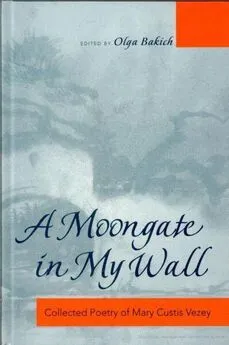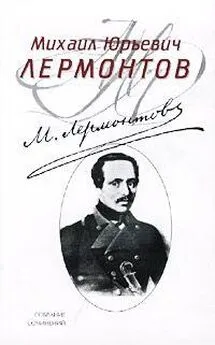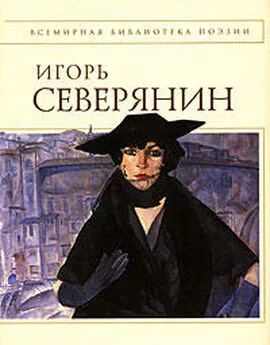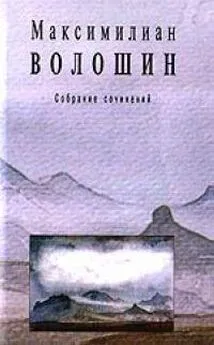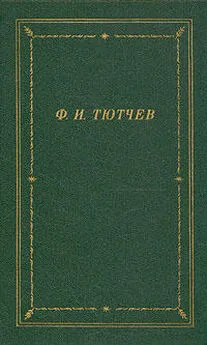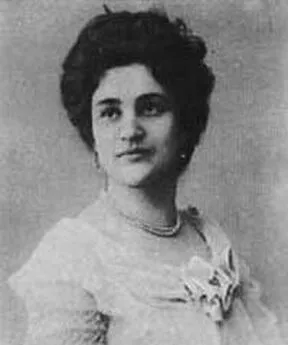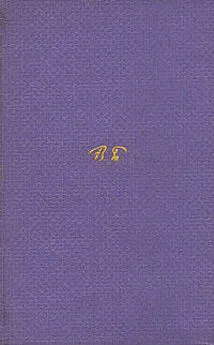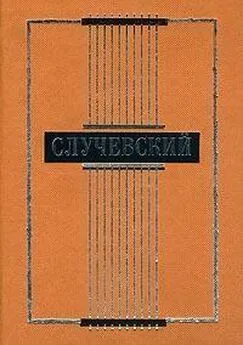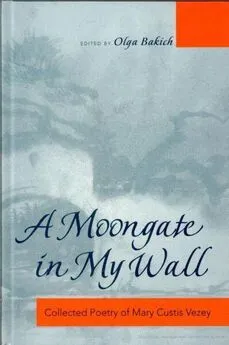Мария Визи - A moongate in my wall: собрание стихотворений
- Название:A moongate in my wall: собрание стихотворений
- Автор:
- Жанр:
- Издательство:Peter Lang Publishing, Inc.
- Год:2005
- Город:New York
- ISBN:0-8204-7837-7
- Рейтинг:
- Избранное:Добавить в избранное
-
Отзывы:
-
Ваша оценка:
Мария Визи - A moongate in my wall: собрание стихотворений краткое содержание
Мария Визи (1904-1994) – поэтесса «первой волны» русской эмиграции. Данное собрание стихотворений, изданное в США, под редакцией Ольги Бакич, наиболее полное на данный момент собрание ее поэтических произведений и переводов.
Издание состоит из 4 частей и включает в себя:
1. Три опубликованных сборника М. Визи: 1929, 1936 и 1973 гг.
2. Стихотворения, не вошедшие в сборники, написанные на русском языке.
3. Стихотворения, не вошедшие в сборники, написанные на английском языке.
4. Неопубликованные переводы
Вступительная статья и комментарии на английском языке.
A moongate in my wall: собрание стихотворений - читать онлайн бесплатно полную версию (весь текст целиком)
Интервал:
Закладка:
In 1925, Mary Vezey sailed, via Japan, to the USA to study at Pomona College (presently one of the six Claremont Colleges) in Claremont, California; her major was Languages and Literatures. In her two academic years at Pomona, she participated in the YWCA, Le Cercle Franca is, the Daubers Art Club, and the Cosmopolitan Club, the latter promoting friendship and understanding between Americans and foreign students. She also worked on Metate, an annual publication by the junior class. Her poetry in English gained recognition, and she was invited to join the Scribblers Society, founded in 1913 by Professor William Sheffield Ament. Membership, limited to twelve, was by invitation only and based on writing ability. The Society's journal, Scribblers Magazine, renamed Manuscript in 1925, published her article "Chinese Poetry during the T’ang Dynasty" and two poems, one of which, "Chinese Serenade" (poem 69), was awarded an honourable mention by the journal Inter-Collegiate World and reprinted. [10] Mary Vezey, "Chinese Poetry during the T'ang Dynasty," Manuscript, Pomona College, v. 2, no. 3, May 1925, p. 14–17; Mary Vezey, "Chinese Serenade." Ibid., v. 3, no. I, November 1925, p. 11 (poem 69 in this collection); Mary Vezey, "Fortune Teller," Ibid., v. 3, no. 3, March 1926, p. 19 (poem 72); Mary Vezey, "To R," Ibid, v. 3, no 3, March 1926, p. 27 (poem 60); "Editor Koempel Says Book Will Appear March 15," Student Life, no. 54, 17 February 1926, p. I.
Returning to Harbin, Mary Vezey worked for her father's newspaper and at various firms which required knowledge of both Russian and English. She continued to write poetry, but did not participate in the "Young Chu-raevka," a Harbin literary circle established at the YMCA by its Russian secretary, Harbin poet Aleksei Achair (Aleksei Alekseevich Gryzov, 1896–1960). Its young members (future Harbin and Shanghai poets Larissa Andersen, Georgii Granin, Valerii Pereleshin, Nikolai Peterets, Sergei Sergin, Nikolai Shchegolev, Vladimir Slobodchikov, Mikhail Volin, and others, most a little younger than she was) held literary and cultural evenings, invited guest speakers, and formed a poetry workshop to read and discuss their works. Henry Vezey was on the Board of Directors of the Harbin YMCA, and it is noteworthy that it was not one of the many Harbin Russian newspapers, but Henry Vezey's American Harbin Daily News that published six weekly issues of the circle's literary newspaper as a supplement. [11] "Molodaia Churaevka," No. 1 (7 July l932)-No. 6 (6 August 1932), a weekly supplement to Harbin Daily News.
As one Harbin poet and journalist recalled, "Mary Vezey, slim Musia, American by father, Russian by mother, by-passed 'Churaevka/ She knew many of its members; she had attended the same school with many of them. Her family was well known in the city; everyone knew her father, the editor of the only American newspaper in the city. Musia, had she wished, could easily have caused a sensation, but she did not strive to publish or to recite her poetry, she was 'hiding/ and only a few had a chance to appreciate her musical, pure lyrics. Finally, she was talked into publishing a book of poetry. It came out in Harbin and was quickly sold out." [12] Ju.V. Kruzenshtern-Peterets, "Churaevskii pitomnik (O dal'nevostochnykh poetakh)" (Cluiraevka Nursery (On the Far-Eastern Poets)), Vozrozhdenie (Resurrection), Paris, no. 204, December 1968, p. 54–55
This book was her first collection, simply entitled Stikhotvoreniia (Poems), with an epigraph from Anna Akhmatova; "The body cannot live / without the sun, the soul — without a song." [13] Akhmatova's lines are from the poem "Skazal, chto u menia sopernits net" (He said that I have no competitors). Anno Domini, Petrograd, 1921, and Berlin, 1923, later translated by Mary Vezey into English (poem 578).
Among many Russian books published in Harbin at the time, it stood out by being bilingual. The cover in Russian was followed by two title pages, in Russian and in English. The book contained 127 poems in Russian, 13 poems in English, 11 translations from Russian into English, 8 translations from English into Russian, and one poem in two versions, Russian and English. Many poems are dedicated to Blok who is presented as a heavenly genius, a teacher, a leader: "I would have given half of my life /just to know definitely / that my song is at least a weak reflection / of his broken reed" (poem 134).
The collection was well received. Arsenii Nesmelov (Arsenii Ivanovich Mitropol'skii, 1889–1945), a most prominent older poet in Harbin, called Mary Vezey "an artist who has fully integrated the technique of Russian symbolism" and continued: "Those strings of Blok's lyre that sound like imitations of Gypsy songs or romances are still easily and eagerly understood by mass consumers of poetry. But Blok as a mystic, Blok as a poet, with his unique feeling for Russia, is disappearing, retreating further and further, and with each passing year becoming harder and harder to understand. That's why this book of poetry, addressed to Blok, and, moreover, written by an American, deserves special attention. The book is interesting in its orientation towards Russian symbolism. The poems to Blok are the best in the collection. (…) The entire book is an echo of Blok (…) though sometimes one can hear Akhmatova and Gumilev. As a student of Russian symbolism, the poet excels." Nesmelov, however, warned: "With her talent, which is definitely felt in some poems, the poet cannot for long follow this path that will inevitably lead her to a creative dead-end— Sooner or later she will have to pave her own way." [14] A. Nesmelov, "Interesnaia kniga. "Stikhotvoreniia." M. Vizi" (An Interesting Book. "Poem s.") M. Vezeyl, Rupor (Mouthpiece), Harbin, 15 August 1929.
He later inscribed an offprint of his poem "Cherez okean" (Across the Ocean) [15] A. Nesmelov, "Cherez okean" (Across the Ocean), Ponedel'nik (Monday), Shanghai, no. 2. 1931.
: "To Mary Vezey — to a great poet. 25/XI/1931. Arsenii Nesmelov."
All her life she kept both the offprint and the envelope in which it was sent to her.
Another review, by Harbin poet Vasilii Loginov (1891–1946), criticized her poetry for "unusual, perhaps excessive, grammatical correctness" and argued that some sentences did not sound quite Russian. Further shortcomings, in his opinion, were "the youthful insignificance of the majority of poems," "the almost complete absence of sexuality," and "almost no lyrics and erotica." On the other hand, Loginov praised an "almost Levitan-like feeling for landscape" and "the great significance and force" of some poems. His conclusion was that "a certain poetic and artistic taste (…) was apparently formed by such perfect masters as Blok and Gumilev, who stretched a blessing hand over all Vezey's poems." [16] V. Loginov, "Knizhnye novinki. M. Vizi. "Stikhotvoreniia" (New Books. M. Vezey, "Poems"), Rubezh (Border), undated cutting, Harbin, 1930. 1.1. Levitan (1860–1900) was a Russian landscape painter, famous for his pensive, poetic paintings.
Not knowing English, neither Nesmelov, nor Loginov mentioned the English poems and translations.
The collection was welcomed in Claremont; a reviewer particularly noted that "one poem is entitled 'Claremont/ though it is in Russian, a tantalizing combination which was a great disappointment to everyone who wanted to read it." The translation of the poem (poem 28) into English by Professor Dietrich Neufield of Pomona College and Linda Schroeder, completed the review. [17] "College Graduate Writes Book of Poems in Russian," Claremont Courier, 20 March 1930.
At the end of the 1920s and beginning of the 1930s, Mary Vezey turned to translating Russian emigre poetry. Responding to her translations of his poems, a Paris poet Lazar' Kel'berin wrote: "You translate with surprising precision, retaining naivete, meaning and style; you are very talented. Moreover, you are doing a valuable cultural work by translating Russian poets who write in foreign lands and introducing them to English readers." The praise was combined with advice: "That's why, Miss Mary, 1 believe that it is better to give English readers samples of true and great poetry, that of Blok and Gumilev; add O. Mandel'shtam, A. Akhmatova, N. Otsup, G. Adamovich, Vladislav Khodasevich, but not us, the young ones, the beginners, who might give uninitiated readers a false impression of Russian poetry. Of course, what young poet would not be flattered to be published, translated! But one cannot publish Blok and, for example, me together. Under one cover one should publish poetry of an approximately equal value. If you like, send me a few translations of Blok and Gumilev." [18] Letter from L. Kel'berin to M. Vezey, 6 August 1930. For a translation of a poem by Kel'berin see poem 611.
Another Paris poet, Vladimir Smolensk», wrote that although he did not know English, "people who know English tell me that the translations were done very well. Therefore, I ask you to accept my most sincere gratitude. As for including my poems in the collection which you want to publish, of course I shall be very glad and I give you my full permission." [19] Letter from V. Smolenskii to M. Vezey, 23 December 1930. For translations of Smolenskii's poetry see poems 636–648.
Both Kel'berin and Smolenskiy asked the same question: "Do you write poetry in Russian?"
By the end of 1920s, the political situation in northeast China (called Manchuria by the foreigners) had changed. Since 1924, the Chinese Eastern Railway had been operated jointly by the USSR and the Chinese Republic, but their relations steadily worsened. In 1929, a serious conflict led to military action on the west border, easily won by the USSR. In autumn 1931-winter 1932, Japan occupied the three northeast provinces of China and in March 1932 established the puppet state of Manchukuo. Two years later, Manchukuo was transformed into the Great Manchu Empire with the puppet emperor Pu Yi on the throne. The USSR was forced to sell its share of the Chinese Eastern Railway to Japan in 1935 and pull out of the area.
Henry Vezey's newspaper Harbin Daily News closed in 1932, and in 1933 the Vezey family moved to Shanghai, as many Harbin Russians did in the 1930s. Shanghai was too international to allow for the creation of the Russian atmosphere typical of Harbin, but nevertheless there was some Russian cultural and literary life, including publication of books, newspapers, and journals. In Shanghai, Mary Vezey worked for foreign firms and continued to write poetry and some short stories, the latter published under a pseudonym of A. Raevskaia. [20] A. Raevskaia, "Fiesta" (Fiesta), Rubezh, no. 42, 14 October 1933; A. Raevskaia, "Parusa korablei" (Sails of Boats), Prozhektor (Searchlight), Shanghai, no. 48, 25 November 1933; A. Raevskaia, "Pari" (A Bet), Prozhektor, no. 3, 13 January 1934.
Her second collection of poetry came in 1936. Entitled as simply as the first one, Slikholvoreniia (Poems), but numbered II, it contained 52 poems, all in Russian. Most copies of this collection were allegedly "eaten by rats" during the 1937 Japanese attack on Shanghai, as Mary Vezey was later informed by the publishers V.P. Kamkin and Kh.V. Popov, [21] Letters from M. Vezey to O. Bakich, 28 August 1989 and 7 March 1991.
Like the first collection, it became a bibliographical rarity.
Reviewing the second collection, Harbin poet Natalia Reznikova wrote that in Vezey's poetry "the influences of A. Blok and Anna Akhmatova are organically intertwined. (…) However, Blok's motifs provide relief from the concrete, earthly, sensual "Akhmatova style" and impart transparency, detachment, and a seraphic quality to her current poems. M. Vezey's own independence is felt in precisely this combination of almost incompatible elements. (…) It's true that the metre is not always strictly observed, and some poems are technically weak, but this lack of technique in Vezey's poetry does not irritate. There is something of wildflowers, of unmowed meadows, in these inconsistent lines, broken like intakes of breath." [22] N. Reznikova, "Knizhnye novinki. M. Vizi. Stikhotvoreniia" (New Books. M. Vezey. Poems), Rubezh, no. 27, 27 June 1937.
An anonymous reviewer admired "the purest lyricism" and "the melancholic mood of the author," while in another unsigned review it was pointed out that "her main inspiration is Blok and Gumilev" and she was praised for her "poetic competence," "lines impeccable in their rhythm and metre" and "noble simplicity." [23] "Bibliografiia. M. Vizi. Stikhotvoreniia, t. II (Bibliography. M. Vezey. Poems, v. II), Emigrantskaia mysl' (Emigre Thought), Shanghai, No. 3, 1936; "M. Vizi, Stikhotvoreniia II" (M. Vezey. Poems II), Novyi put' (New Road), Shanghai, 24 May 1936.
Интервал:
Закладка:
